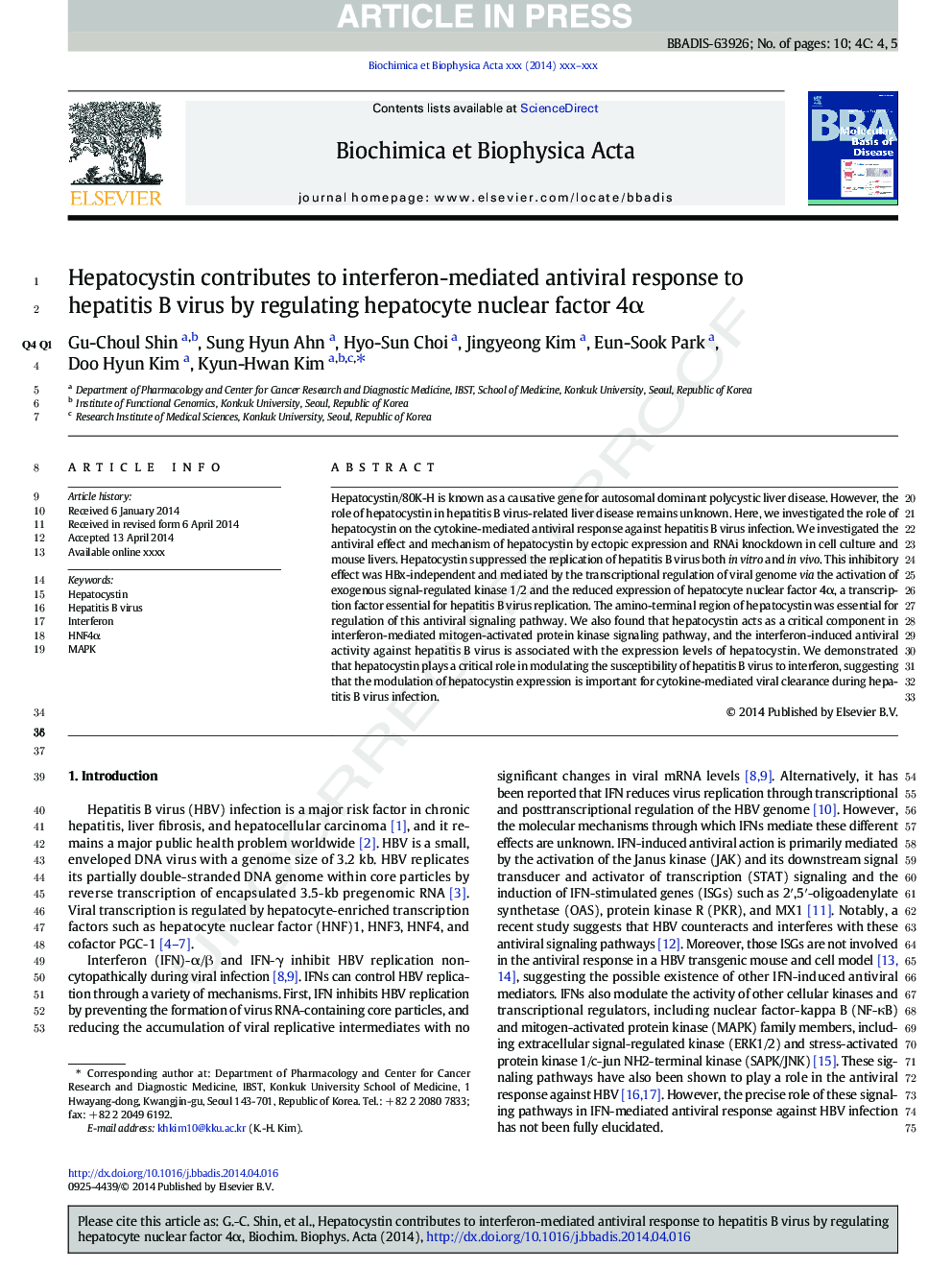| Article ID | Journal | Published Year | Pages | File Type |
|---|---|---|---|---|
| 8260237 | Biochimica et Biophysica Acta (BBA) - Molecular Basis of Disease | 2014 | 10 Pages |
Abstract
Hepatocystin/80K-H is known as a causative gene for autosomal dominant polycystic liver disease. However, the role of hepatocystin in hepatitis B virus-related liver disease remains unknown. Here, we investigated the role of hepatocystin on the cytokine-mediated antiviral response against hepatitis B virus infection. We investigated the antiviral effect and mechanism of hepatocystin by ectopic expression and RNAi knockdown in cell culture and mouse livers. Hepatocystin suppressed the replication of hepatitis B virus both in vitro and in vivo. This inhibitory effect was HBx-independent and mediated by the transcriptional regulation of viral genome via the activation of exogenous signal-regulated kinase 1/2 and the reduced expression of hepatocyte nuclear factor 4α, a transcription factor essential for hepatitis B virus replication. The amino-terminal region of hepatocystin was essential for regulation of this antiviral signaling pathway. We also found that hepatocystin acts as a critical component in interferon-mediated mitogen-activated protein kinase signaling pathway, and the interferon-induced antiviral activity against hepatitis B virus is associated with the expression levels of hepatocystin. We demonstrated that hepatocystin plays a critical role in modulating the susceptibility of hepatitis B virus to interferon, suggesting that the modulation of hepatocystin expression is important for cytokine-mediated viral clearance during hepatitis B virus infection.
Keywords
Related Topics
Life Sciences
Biochemistry, Genetics and Molecular Biology
Ageing
Authors
Gu-Choul Shin, Sung Hyun Ahn, Hyo-Sun Choi, Jingyeong Kim, Eun-Sook Park, Doo Hyun Kim, Kyun-Hwan Kim,
